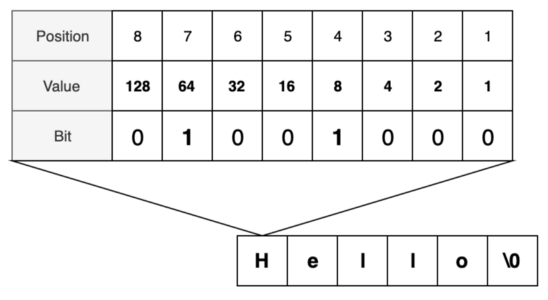今日推荐开源项目:《天气 earth》
今日推荐英文原文:《How To Learn Any New Programming Language Quickly》

今日推荐开源项目:《天气 earth》传送门:GitHub链接
推荐理由:虽然看起来是个古物,但是这个项目可是实打实的想要将地球天气可视化的展现出来。天气这玩意几乎完全无法控制,所以看天气预报就显得十分重要,这个项目虽然不是天气预报,也只有风向的展示,但是这会是一个好的想法——毕竟可视化的天气预报虽然提供的信息有点偏观赏性而不是实用性,但是好看也是很重要的一部分,谁又能肯定积雨云里真的没有一大群像这些风线一样的透明鱼和云之龙什么的在里面生活呢?
今日推荐英文原文:《How To Learn Any New Programming Language Quickly》作者:
原文链接:https://medium.com/better-programming/how-to-learn-any-new-programming-language-quickly-94996895669b
推荐理由:编程语言来来去去有些东西是不会变的
How To Learn Any New Programming Language Quickly
An essential checklist of fundamentals
This article assumes you already know at least one programming language; however, the concepts here will help you get started with programming.When I was in school, a teacher told me something I share with new developers: The hardest programming language you’ll ever learn will be your second.
Don’t let this be disheartening — it means that when you first learn how to program, you have all of these preconceived ideas about programming. You end up making more syntax connections and assumptions than you should. Because of this, you have to “unlearn” these assumptions when you learn your second language. Try to keep this in mind if you’re attempting to learn your second language or even your third.
Anatomy of Programming
There are a lot of programming languages, easily over 5,000, but the TIOBE index lists the top 250. All of the top 20 languages that aren’t unique cases will have similar standard libraries.I think the best way to think about programming is to strip out all of the extra “stuff” so you’re left with only the necessities.
The Atoms
Every aspect of every language can be reduced down to true and false. Why? Because electricity works this way — you either have a charge, or you don’t. Memory stores values in the form of 0s and 1s, and either this bit is charged, or it’s not.Eight bits is equivalent to one byte, which is enough to list any character on the ASCII table. The bits are flipped in such an order that it provides the DECimal representation of the character. The computer understands how to translate this representation into a letter.

Basic binary representation showing how the word Hello is created.
Having an understanding of this one concept, “the why,” will make the rest of this a lot easier on you.
The Tools

Photo by Fleur on Unsplash
The tools are all the same, and while they can be learned in any order, this is the order I usually take.
Variables
This seems simple enough, but seriously, how do you create a variable?Operators
What are the operators, and how are they used? You can assume you have basic math operators, but what about logical operators? Is an “AND” operator spelled out as “and” or “AND,” or does it use symbols such as “&&?”Conditionals
Surprisingly, my most read articles for both Swift and Python have to do with decision making. The next thing you need to know is how you can make decisions in your program. Does the language you are trying to learn use the traditional “if/else if/else” or something more Pythonic such as “if/elif/else?” Does your language have a “switch” or “guard” statement?Loops
How can you loop through repetitive tasks? Does the language contain for-loops, while loops, do-while loops, or for-each statements?Functions
Is it possible to create functions? If so, how do you do it? How do you include parameters in these functions? Knowing how to properly use functions will save you time and make your life so much easier.Classes and structs
Does this language understand the concept of classes or structs? It sounds like a dumb question, but some languages don’t have either, or they have only one. If it does, how do you create a class or struct? Does the class require a constructor or init method?Error handling
Errors are inevitable. When they occur, does this language have a robust error handling solution and how do you use it? Is it “try/catch,” “try/except,” or something else? Are there other clauses such as “else” or “finally” that allow other options for errors?Testing
How do you test your code? Is there a built-in library for testing or do you have to download a separate tool?All of these tools should be in most modern programming languages. Even the older languages such as COBOL have most of these, but they may be called something different, like paragraphs or copybooks.
Getting Good
Once you understand these tools, the next thing you need to do is use them and write an application. You can know of a language by reading the docs, but you don’t know the language until you’ve written a few applications with it.By writing an application, you’re forced to think like an X programmer. I can say that I know C++ because I took a class in C and read the docs on C++, but I really don’t know it until I’ve written an application in C++ using features specific to the language.
A good starter project is Blackjack. Blackjack requires variables, operators, conditionals, loops (based on the number of players), functions, classes/structs, and error handling. You can include test cases for potential failures, such as running out of cards.
Other good starter projects might include Shoots and Ladders, Yahtzee, or a Slot Machine.
For something more advanced, try to recreate a game like Monopoly. Worry more about the mechanics and keep it text-based.
It’s key to remember that if you short yourself on the difficulty of the task (such as skipping the double down or split features of blackjack), you’re only limiting your comprehension of the language.
What Else?
I know that the list of things above isn’t everything that a language has to offer. The truth is you can write just about anything with the tools listed above, but the additional functionality included in standard libraries just make it easier. Most standard libraries include the same functions, and so you can rely on similar names between languages.The more you work with a language, the more you can discover about the standard library, but be sure to learn the tools beforehand.
As you work with a language, try to figure out what its strengths and weaknesses are. These will help you understand which language to use for a particular problem.
Need to do some data science quickly? Look at a few Python packages or R. Need to write a fast service? Look at C or Go. How about a web server? Look at Java or Python.
I didn’t just know this by looking at the languages. I learned this by using these languages.
Since this is possibly my shortest article to date, I’m going to leave you with a challenge to yourself to learn a new language. Good luck!
下载开源日报APP:https://openingsource.org/2579/
加入我们:https://openingsource.org/about/join/
关注我们:https://openingsource.org/about/love/
